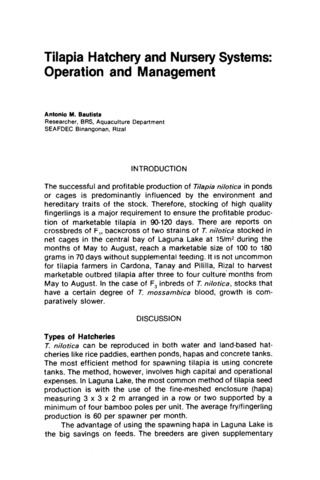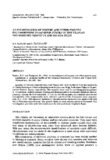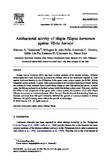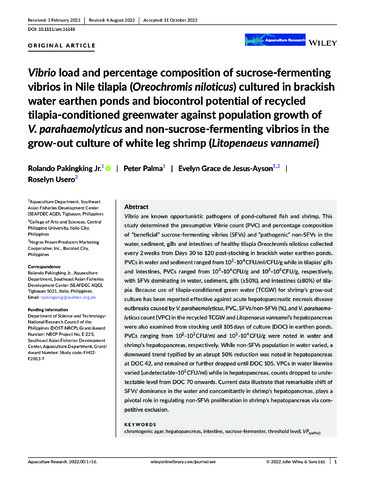Tilapia hatchery and nursery systems: Operation and management

ရှာဖွေ/ဖွင့်ပါ။
ရက်စွဲ
1987စာရေးသူ
Page views
1,591
Share
စိတ္တဇ
The successful and profitable production of Tilapia nilotica in ponds or cages is predominantly influenced by the environment and hereditary traits of the stock. Therefore, stocking of high quality fingerlings is a major requirement to ensure the profitable production of marketable tilapia in 90-120 days. There are reports on crossbreds of F1 backcross of two strains of T. nilotica stocked in net cages in the central bay of Laguna Lake at 15/m2 during the months of May to August, reach a marketable size of 100 to 180 grams in 70 days without supplemental feeding. It is not uncommon for tilapia farmers in Cardona, Tanay and Pililla, Rizal to harvest marketable outbred tilapia after three to four culture months from May to August. In the case of F3 inbreds of T. nilotica, stocks that have a certain degree of T. mossambica blood, growth is comparatively slower.
Suggested Citation
Bautista, A. M. (1987). Tilapia hatchery and nursery systems: Operation and management. In R. D. Guerrero III, D. L. de Guzman, & C. M. Lantican (Eds.), Tilapia Farming: Proceedings of the First National Symposium and Workshop on Tilapia Farming, PCARRD, Los Baños, Laguna, November 24-26, 1986 (pp. 8–13). Los Baños, Laguna: PCARRD, BFAR and SEAFDEC Aquaculture Department.
ဘာသာရပ်
စုစည်းမှုများ စုစည်းမှုများ
Related items
Showing items related by title, author, creator and subject.
-
An investigation of enzyme and other protein polymorphisms in Japanese stocks of the tilapias Oreochromis niloticus and Tilapia zillii
Basiao, Zubaida U.; Taniguchi, Nobuhiko (Elsevier, 1984)Samples of Oreochromis niloticus and Tilapia zillii were collected from the hatcheries of Osaka Prefecture Fisheries Experimental Station and Shiga Prefecture Fisheries Experimental Station, Japan, respectively. The samples ... -
Antibacterial activity of tilapia Tilapia hornorum against Vibrio harveyi
Tendencia, Eleonor; dela Peña, Milagros R.; Fermin, Armando C.; Lio-Po, Gilda; Choresca, Casiano H., Jr.; Inui, Yasuo (Elsevier, 2004)Disease due to luminous Vibrio has been a major problem of the shrimp industry. Different technologies have been introduced to control the disease. One of the techniques reported to work against luminous bacteria in the ... -
Vibrio load and percentage composition of sucrose‐fermenting vibrios in Nile tilapia (Oreochromis niloticus) cultured in brackish water earthen ponds and biocontrol potential of recycled tilapia‐conditioned greenwater against population growth of V. parahaemolyticus and non‐sucrose‐fermenting vibrios in the grow‐out culture of white leg shrimp (Litopenaeus vannamei)
Pakingking, Rolando V., Jr.; Palma, Peter; de Jesus-Ayson, Evelyn Grace T.; Usero, Roselyn (Wiley, 2022-10-20)Vibrio are known opportunistic pathogens of pond-cultured fish and shrimp. This study determined the presumptive Vibrio count (PVC) and percentage composition of “beneficial” sucrose-fermenting vibrios (SFVs) ...




